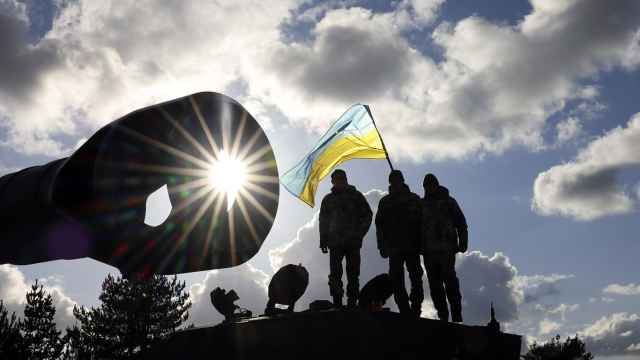Национальность: ethnicity (or not)
What is национальность?
Dictionaries tell you that it's ethnicity: принадлежность человека к этнической общности, отличающейся особенностями языка, культуры, психологии, традиций, обычаев, образа жизни (a person's identification with an ethnic group that is distinguished by a distinctive language, culture, psychology, traditions, customs and way of life).
When one native Russian speaker asks another, Кто ты по национальности? (What's your ethnic background?), they are talking about origins. The reply might be: Папа — русский, а мама — татарка (My father's Russian, while my mother's Tatar.)
So when I'm asked, Кто ты по национальности?, I say: Мама — украинка, а папа — лемко (My mother was Ukrainian and my father was a Lemko), often adding: Это — закарпатская народность (That's a Trans-Carpathian ethnic group).
But no one likes that reply. So they usually rephrase the question: Но откуда ты родом? (But where were you born?)
Another American friend reports that when he is asked about his национальность and says я американец (I'm an American), he gets the opposite protest: Понятно. Но кто ты по национальности? (Right. But what's your ethnic background?) Jeez, it's so hard to make inquisitive Russians happy.
What's the problem? Is the meaning of the word национальность changing?
After reading hundreds of examples, I've come to the conclusion that most Russians understand национальность as этническая общность (ethnic group). But sometimes they confuse it with citizenship. For example, one person writes: Если японцы приезжают во Францию и там рождается сын — он француз, что ли? (If a Japanese couple moves to France and have a son, what is he — a Frenchman?)
Perhaps the issue is that many Russians are used to nations of one ethnic group. Он француз (He's French) means that he's ethnically French and, if not otherwise noted, a French citizen.But they'll also say Он бельгиец (He's Belgian), regardless of whether he's ethnically French, Flemish or German.
But for some reason, американец (American) is not considered национальность the way бельгиец is. In fact, the Russian Internet is filled with clarifications — from comical to crude — on what exactly "американец" is: Американец — не национальность. Американец — это тот, у кого американский паспорт. ("American" isn't a nationality. An American is someone with an American passport). Американец — это не национальность, это диагноз ("American" isn't a nationality, it's a diagnosis.) Американец — это не национальность, это философия ("American" isn't a nationality. It's a philosophy.) Американец — это специальность ("American" is a profession). Американец — это религия ("American" is a religion).
Sometimes an explanation of why "American" isn't a nationality uses terms that make it, on the contrary, a dictionary-perfect definition of национальность: Американец — это не национальность, а чувство принадлежности к американской цивилизации, к американской земле ("American" isn't a nationality, but rather a feeling of belonging to American civilization and attachment to American land).
But wait! That sense of belonging to a civilization and land is pretty much how Vladimir Putin described самоидентичность русского народа (the self-identity of the Russian people) in his essay about национальный вопрос (the national problem).
So I give up. When someone asks me, Кто ты по национальности? I'm going to say: Что ты имеешь в виду? (What do you mean?)
Michele A. Berdy, a Moscow-based translator and interpreter, is author of "The Russian Word's Worth" (Glas), a collection of her columns.
A Message from The Moscow Times:
Dear readers,
We are facing unprecedented challenges. Russia's Prosecutor General's Office has designated The Moscow Times as an "undesirable" organization, criminalizing our work and putting our staff at risk of prosecution. This follows our earlier unjust labeling as a "foreign agent."
These actions are direct attempts to silence independent journalism in Russia. The authorities claim our work "discredits the decisions of the Russian leadership." We see things differently: we strive to provide accurate, unbiased reporting on Russia.
We, the journalists of The Moscow Times, refuse to be silenced. But to continue our work, we need your help.
Your support, no matter how small, makes a world of difference. If you can, please support us monthly starting from just $2. It's quick to set up, and every contribution makes a significant impact.
By supporting The Moscow Times, you're defending open, independent journalism in the face of repression. Thank you for standing with us.
Remind me later.







